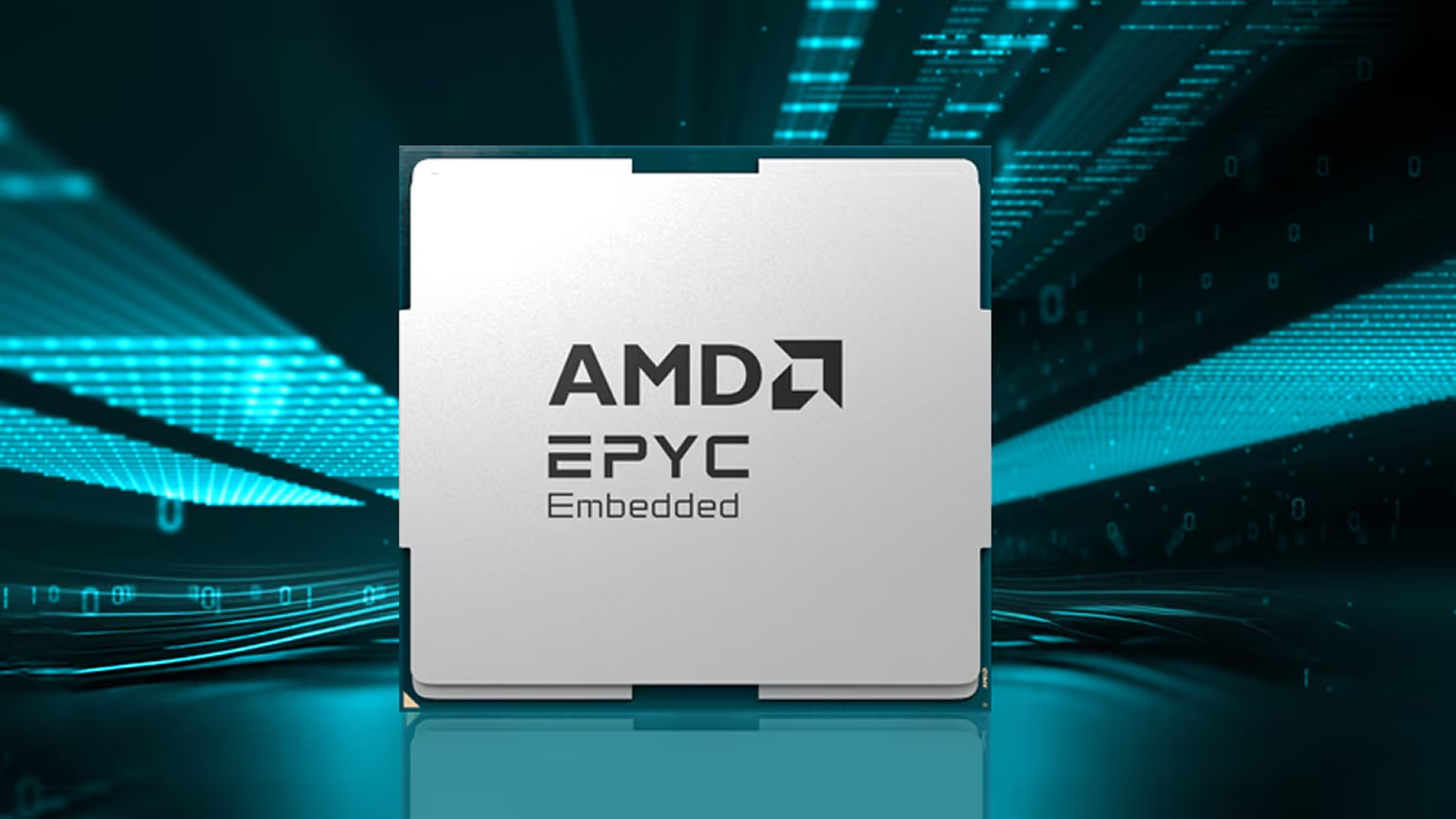

On March 11, 2025, Nuremberg, Germany (Embedded World Conference) - AMD (AMD, NASDAQ: AMD) announced today the launch of its fifth generation AMD EPYC ™ (Xiaolong) Embedded processor, expanding its x86 embedded processor product portfolio.
The AMD EPYC Embedded 9005 series CPU has been optimized for the embedded market, achieving a balance between cutting-edge computing power and proprietary embedded features, thereby improving product lifespan, reliability, system resilience, and ease of embedded application development. The processor adopts the proven "Zen 5" architecture, which provides leading performance and energy efficiency, enabling network, storage, and industrial edge systems to process more data faster and more efficiently.
Salil Raje, Senior Vice President and General Manager of Adaptive and Embedded Computing at AMD, stated that AI driven network traffic, surging data storage demands, and the expansion of industrial edge computing power are driving the demand for higher computing performance in embedded platforms. The fifth generation AMD EPYC embedded processors bring leading performance and efficiency, as well as long product lifecycles and enhanced system resilience to embedded customers, enabling them to confidently design and ensure continuous operation in harsh 'always on' environments. ”
Leading core density, performance, and energy efficiency
The AMD EPYC Embedded 9005 series processors are designed to support computationally intensive embedded systems, supporting a range of 8 to 192 cores per slot. The industry-leading core density can increase the data processing throughput of network and storage workloads by up to 1.3 times and 1.6 times, respectively, making this device an ideal choice for network and security firewall platforms, storage systems, and industrial control applications.
By utilizing the new "Zen 5c" core architecture, higher throughput and energy efficiency can be achieved, with DDR5 memory capacity of up to 6TB per slot, expanded I/O connectivity, and CXL connectivity ® 2.0 supports up to 160 PCIe ® Gen5 channels enable storage capacity expansion and high-speed data transmission for network and storage applications.
Features built specifically for specific applications
The AMD EPYC Embedded 9005 series processors include an advanced set of embedded features designed to provide a powerful, secure, and durable platform.
Extended lifespan: In order to meet the longer product lifecycle and operational requirements of the embedded market, AMD EPYC Embedded 9005 Series CPUs will provide an extended 7-year product manufacturing support to help system designers ensure long-term product availability and reduce redesign and certification work. In addition, AMD plans to extend the design lifespan of the current AMD EPYC embedded 9005 series CPUs from 5 years to 7 years for mass-produced SKUs to ensure the long-term product stability of embedded systems. These extended design life operational goals are crucial for embedded systems that operate critical task applications under harsh conditions, minimizing unplanned downtime, maintenance, and costly system replacements.
System resilience and security: Features include non transparent bridging (NTB), which can provide higher availability in fault-tolerant multi host configurations. NTB via PCI Express (PCIe) ®) Implementing data exchange between two CPUs in a dual active (active/active) configuration enhances system redundancy and failover capabilities for both network and storage systems, allowing for continued operation in the event of a failure. DRAM Flush helps prevent data loss in the event of a power failure by transferring data from DRAM to non-volatile memory, thereby enhancing the reliability of mission critical storage deployment. The Dual Serial Peripheral Interface (SPI) enables customers to load secure and proprietary boot loaders to verify the platform and ensure a trusted execution environment.
Application development simplicity: The built-in Yocto framework simplifies embedded system deployment and supports creating customized Linux distributions for customer systems. The Storage Performance Development Kit (SPDK) and Data Plane Development Kit (DPDK) improve system performance by performing network and storage workload data processing in user space drivers.
Industry support and supply situation
AMD is working closely with ecosystem partners and leading ODM and OEM (including Cisco and IBM) to bring the advantages of these next-generation embedded processors to the market.
Lukasz Bromirski, Director of Product Management at Cisco, said, "We chose AMD EPYC Embedded 9005 Series processors for one of our high-end firewall products because it provides the high computing performance we need, from its scalability of up to 192 cores to its high storage and I/O bandwidth. We know we can trust AMD not only for its outstanding performance, but also for its top-notch quality and support, as well as consistent roadmap execution. ”
Matthew Geiser, Product Management Department for IBM Storage for Data, AI, and HPC, stated that the IBM Storage Scale System 6000 is designed to provide speed, performance, and reliability for demanding enterprise AI workloads. One of the main advantages of AMD EPYC embedded 9005 processor is the introduction of redundant paths, providing high data availability and powerful connectivity options, which will match well with performance intensive applications running on IBM Storage Scale System. ”
The AMD EPYC embedded 9005 series processor is currently providing samples to early trial customers and is expected to begin mass production and shipment in the second quarter of 2025. The AMD EPYC Embedded 9005 series processor adopts the SP5 slot size specification, which is compatible with the previous generation AMD EPYC Embedded 9004 series and provides customers with a simple upgrade path.